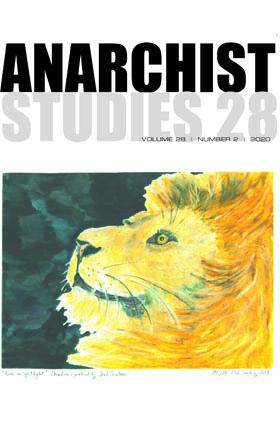
Indigeneity, Gender, and Resistance: Critique and Contemporaneity of Bolivian Anarchism in the Historical Imagination of Silvia Rivera Cusicanqui
Anarchist Studies - Print ISSN 0967-3393 - Online ISSN 2633-8270
Volume 28 Number 2
Indigeneity, Gender, and Resistance: Critique and Contemporaneity of Bolivian Anarchism in the Historical Imagination of Silvia Rivera Cusicanqui
Geoffroy de Laforcade
DOI: 10.3898/AS.28.2.02
Abstract
For Silvia Rivera Cusicanqui, Evo Morales, President of the Plurinational State of Bolivia from 2006 to 2019, was ‘the façade of the Indian’ who ‘usurped the symbolic added value of all the social struggles’ of the years leading up to his election. In January 2020, his right-wing successor Jeanine Añez, a white representative of the oligarchical restoration that followed the military coup against Morales, proposed a bill that would declare the ‘chola’ to be an emblem of the country’s national heritage. To mark the occasion, she staged a parade of fashion models posing as the urban indigenous/mestiza migrant women whom Rivera Cusicanqui had identified as the driving force behind the Bolivian anarchist movement of the 1920s to the 1940s. The scene was criticised by Aymara journalist Yolanda Mamani of the anarcho-feminist collective Mujeres Creando as a ‘catwalk’ that excluded ‘cholas who sell their wares in the street or work the land’, an electoral ploy designed to ‘whitewash the racism of her government’. Both Rivera Cusicanqui’s critique of the Morales government and Mamani’s denunciation of the Añez regime’s ploy emanated from an anarchist perspective on Bolivian history. It is fitting that Álvaro García Linera, the former Katarista guerrilla and Marxist theorist turned Vice President of Bolivia, had warned against what he called ‘a kind of non-statehood dreamed of by primitive anarchism’. When the socialist government collapsed, the spirit and legacy of anarchist critique (and years of popular mobilisations) appeared vindicated, even as the right’s appropriation of multiculturalism demonstrated that the question of indigeneity as a core component of Bolivian history had made irreversible strides.
To cite this article
Geoffroy de Laforcade (2020) Indigeneity, Gender, and Resistance: Critique and Contemporaneity of Bolivian Anarchism in the Historical Imagination of Silvia Rivera Cusicanqui, Anarchist Studies, 28(2). https://doi.org/10.3898/AS.28.2.02
